 W
WPacifism is opposition to war, militarism or violence. The word pacifism was coined by the French peace campaigner Émile Arnaud and adopted by other peace activists at the tenth Universal Peace Congress in Glasgow in 1901. A related term is ahimsa, which is a core philosophy in Indian Religions such as Hinduism, Buddhism, and Jainism. While modern connotations are recent, having been explicated since the 19th century, ancient references abound.
 W
WFollowing the rise of nationalism and political tensions, as well as the outbreaks of the Yugoslav Wars, numerous anti-war movements developed in Serbia. The 1991 mass protests against Slobodan Milošević regime which have continued throughout the wars reinforced young people's antiwar orientation. The demonstrations in Belgrade were held mostly because of opposition the Battle of Vukovar, Siege of Dubrovnik and Siege of Sarajevo, while protesters demanded the referendum on a declaration of war and disruption of military conscription.
 W
WAhimsa, also spelled Ahinsa, is an ancient Indian principle of nonviolence which applies to all living beings. It is a key virtue in the Dhārmic religions: Hinduism, Buddhism, Jainism, and Sikhism.
 W
WAn anti-war movement is a social movement, usually in opposition to a particular nation's decision to start or carry on an armed conflict, unconditional of a maybe-existing just cause. The term anti-war can also refer to pacifism, which is the opposition to all use of military force during conflicts, or to anti-war books, paintings, and other works of art. Many activists distinguish between anti-war movements and peace movements. Anti-war activists work through protest and other grassroots means to attempt to pressure a government to put an end to a particular war or conflict or to prevent it in advance.
 W
WAntimilitarism is a doctrine that opposes war, relying heavily on a critical theory of imperialism and was an explicit goal of the First and Second International. Whereas pacifism is the doctrine that disputes should be settled without recourse to violence, Paul B. Miller defines anti-militarism as "ideology and activities...aimed at reducing the civil power of the military and ultimately, preventing international war". Cynthia Cockburn defines an anti-militarist movement as one opposed to "military rule, high military expenditure or the imposition of foreign bases in their country". Martin Ceadel points out that anti-militarism is sometimes equated with pacificism—general opposition to war or violence, except in cases where force is deemed absolutely necessary to advance the cause of peace.
 W
WThe Article 12 of the Constitution of Costa Rica abolishes Costa Rica's army as a permanent institution, making Costa Rica one of the first countries in the world to do so as the current Constitution was enacted in 1949. Costa Rica is one of the few countries without armed forces and, alongside Panama, one of the few that is not a microstate. However, like Panama, Costa Rica does have limited military capacities with its Public Forces which have both police and defense functions and had taken part in military operations since 1949.
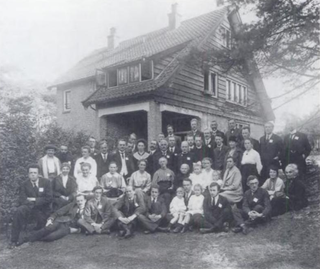 W
WThe Bilthoven Meetings were a series of networking and capacity building meetings of pacifist activists after World War I in the town of Bilthoven in the Netherlands. The activists gathered under the name of Movement Towards a Christian International, which was later renamed to International Fellowship of Reconciliation. The meetings took place at the house of Kees Boeke, a Quaker missionary and pacifist.
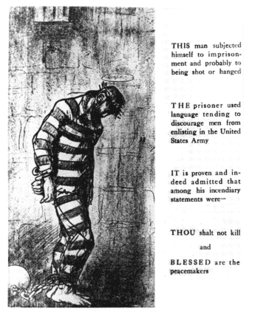 W
WChristian pacifism is the theological and ethical position that any form of violence is incompatible with the Christian faith. Christian pacifists state that Jesus himself was a pacifist who taught and practiced pacifism and that his followers must do likewise. Notable Christian pacifists include Martin Luther King Jr., Leo Tolstoy, Adin Ballou, and Ammon Hennacy. Ballou and Hennacy believed that adherence to Christianity required not just pacifism but, because governments inevitably threatened or used force to resolve conflicts, anarchism. However, most Christian pacifists, including the peace churches, Christian Peacemaker Teams and individuals such as John Howard Yoder, make no claim to be anarchists.
 W
WDesertion is the abandonment of a military duty or post without permission and is done with the intention of not returning. This contrasts with unauthorized absence (UA) or absence without leave, which are temporary forms of absence.
 W
WFlower power was a slogan used during the late 1960s and early 1970s as a symbol of passive resistance and nonviolence. It is rooted in the opposition movement to the Vietnam War. The expression was coined by the American Beat poet Allen Ginsberg in 1965 as a means to transform war protests into peaceful affirmative spectacles. Hippies embraced the symbolism by dressing in clothing with embroidered flowers and vibrant colors, wearing flowers in their hair, and distributing flowers to the public, becoming known as flower children. The term later became generalized as a modern reference to the hippie movement and the so-called counterculture of drugs, psychedelic music, psychedelic art and social permissiveness.
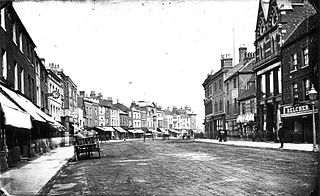 W
WJohn Player clockmakers were a watch and clockmaking business based in Reading in the 19th century. The business was founded by John Byard Player (May 1792 – 11 June 1861) and was maintained on his retirement by his son John Player Junior. By 1846 John Byard Player had established his business in the centre of the town, making and selling timepieces from his premises at 28 Broad Street, Reading. He was a pacifist, a follower of John Wycliffe and a prominent Reading businessman.
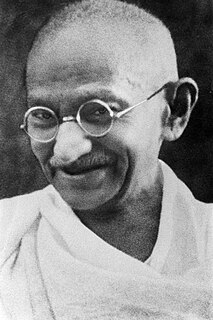 W
WNonviolence is the personal practice of not causing harm to one's self and others under every condition. It may come from the belief that hurting people, animals and/or the environment is unnecessary to achieve an outcome and it may refer to a general philosophy of abstention from violence. It may be based on moral, religious or spiritual principles, but also the reasons for it may be purely strategic or pragmatic.
 W
WPeace is a concept of societal friendship and harmony in the absence of hostility and violence. In a social sense, peace is commonly used to mean a lack of conflict and freedom from fear of violence between individuals or groups. Throughout history leaders have used peacemaking and diplomacy to establish a certain type of behavioral restraint that has resulted in the establishment of regional peace or economic growth through various forms of agreements or peace treaties. Such behavioral restraint has often resulted in the reduction of conflicts, greater economic interactivity, and consequently substantial prosperity.
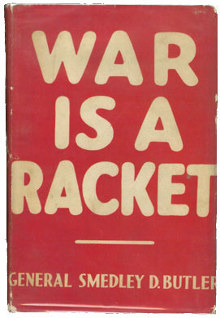 W
WWar Is a Racket is a speech and a 1935 short book, by Smedley D. Butler, a retired United States Marine Corps Major General and two-time Medal of Honor recipient. Based on his career military experience, Butler discusses how business interests commercially benefit, such as war profiteering from warfare. He had been appointed commanding officer of the Gendarmerie during the United States occupation of Haiti, which lasted from 1915 to 1934.
 W
WThe white poppy is a flower used as a symbol of peace, worn either in place of or in addition to the red remembrance poppy for Remembrance Day or Anzac Day.